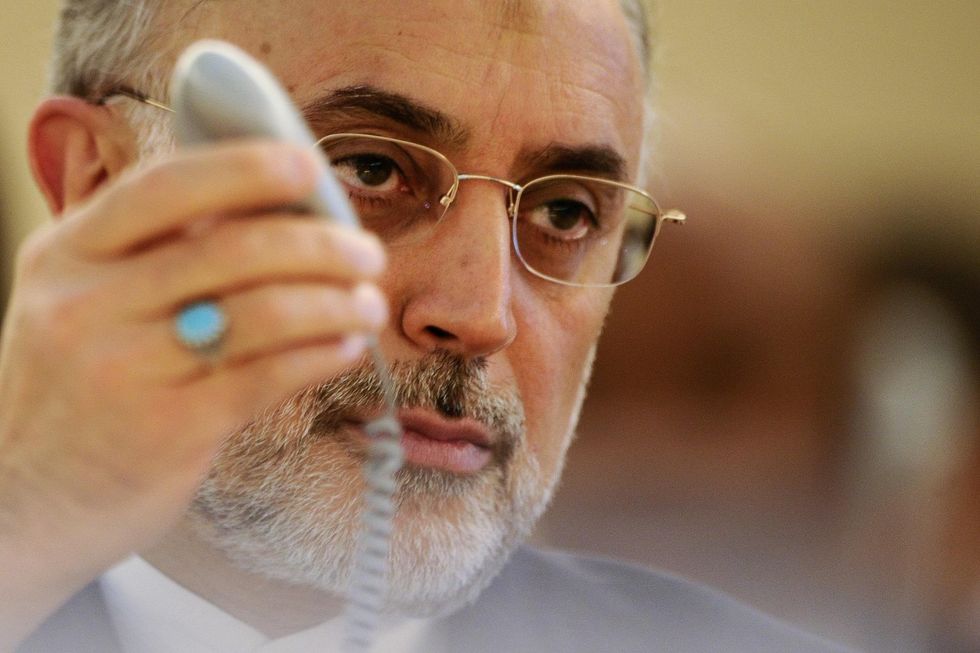
Iran's nuclear chief Ali Akbar Salehi gave an exclusive interview to the Associated Press on Tuesday, where he criticized President Donald Trump and boasted of a strong atomic program. (FABRICE COFFRINI/AFP/Getty Images)

In an exclusive interview with The Associated Press on Tuesday, the head of Iran's nuclear program criticized President Donald Trump for backing out of the nuclear deal made under the Obama administration.
Ali Akbar Salehi warned that if the entire agreement falls apart, his country's atomic capabilities will be ramped up more than even before.
Salehi said he hopes the accord with other world powers will be successful, but believes Trump is on the wrong side of history for pulling the U.S. out of the deal.
"I think (Trump) is on the loser's side because he is pursuing the logic of power," he told the AP. "He thinks that he can, you know, continue for some time but certainly I do not think he will benefit from this withdrawal, certainly not."
Salehi oversees the Atomic Energy Organization of Iran. Under the current Iran nuclear agreement, the country is limited in the amount and enrichment level of uranium it has on-hand.
In 2015, U.S. officials speculated that Iran had enough uranium to create an atomic bomb within a matter of two or three months if it were inclined to do so. Salehi told the AP on Tuesday that if the nuclear deal falls through, his country's atomic program would be ramped up further than it ever was in the past.
"If we have to go back and withdraw from the nuclear deal, we certainly do not go back to where we were before," he said. "We will be standing on a much, much higher position."
Salehi discussed building a new uranium enrichment facility at Natanz, which would utilize more advanced centrifuges than its program had utilized in the past.
"This does not mean that we are going to produce these centrifuges now," he said. "This is just a preparation. In case Iran decides to start producing in mass production such centrifuges, (we) would be ready for that."
Iran is currently under U.S. sanctions, which were reimposed by President Trump last month. But despite the crippling impact the sanctions have had on Iran's economy — such as its rial currency value dropping to a record low last week — Salehi told the AP that the country could handle the financial pressures.
Salehi also warned against any attacks on its scientists, apparently referencing a series of bombings that began in 2010 and killed a number of Iran's nuclear experts. Tehran blamed U.S. and Israeli intelligence for the attacks.
"I hope that they will not commit a similar mistake again because the consequences would be, I think, harsh," Salehi told the AP.